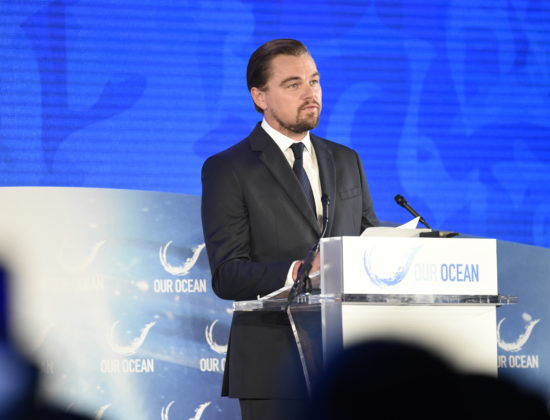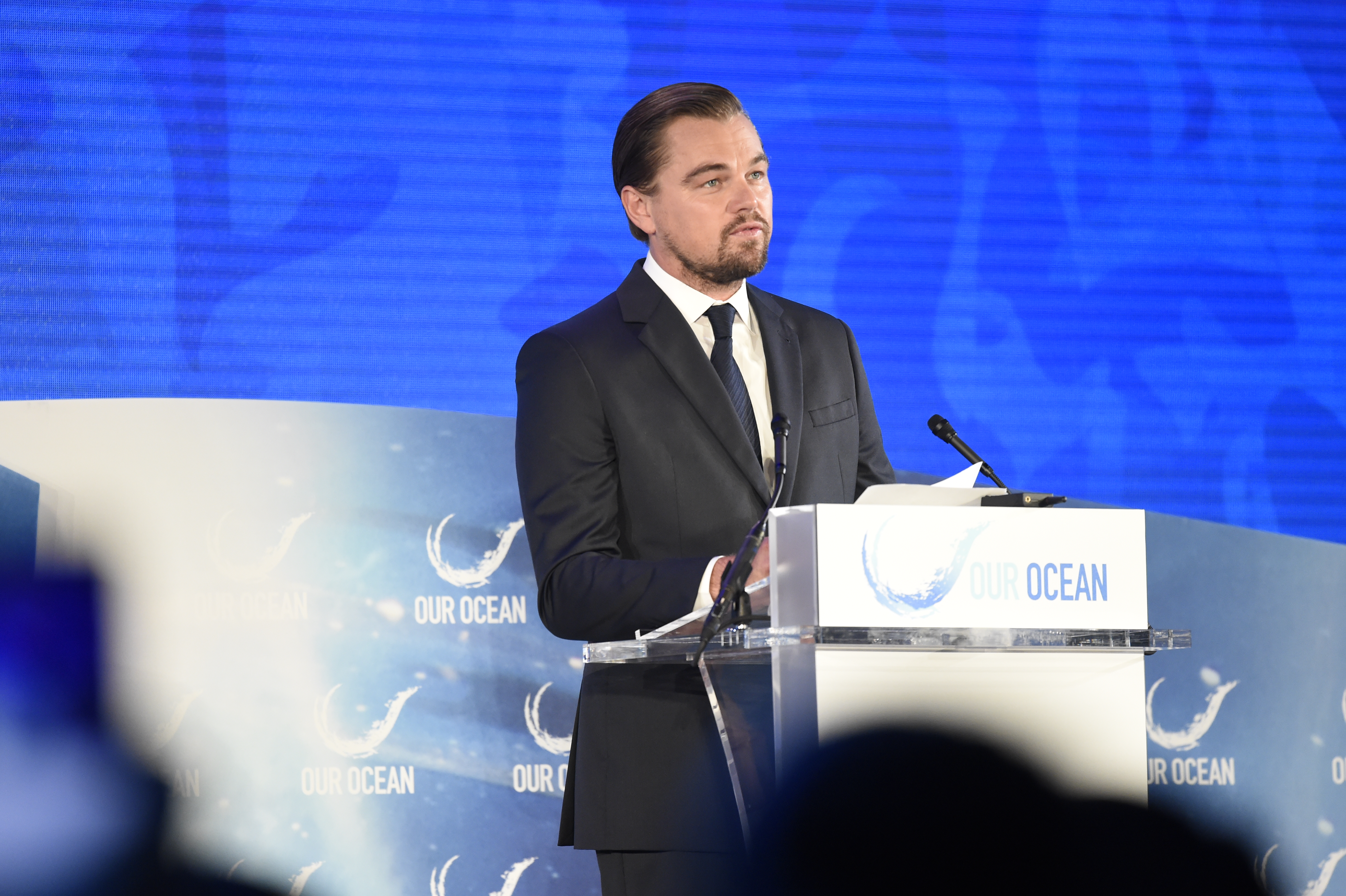By Michael Moore Jr.
At the beginning of “Before the Flood,” Leonardo DiCaprio recalls a painting that hung over his crib during his childhood: Hieronymus Bosch’s “The Garden of Earthly Delights.”
The infamous triptych has three panels: on the far left it depicts the first humans in paradise, in the center it shows humans overindulging in various sins, and in the far right a descent into hell. By the end of the film, DiCaprio has us convinced that we are in the center panel, just waiting for the inevitable fall into the right panel.
Director Fisher Stevens, who has also directed films like “Crazy Love” in addition to producing the award-winning documentary “The Cove,” is responsible for the film. He follows Leonardo DiCaprio’s journey as a newly appointed U.N. Messenger of Peace to understand one of the most significant problems of our era: climate change.

DiCaprio has been a substantial voice in the fight against climate change over the last several years, and this documentary serves as an extension of that voice across the wide-reaching audience that is National Geographic.
Clever marketing tactics such as allowing the film to be temporarily viewed for free on YouTube and various other platforms makes it even more accessible, spreading a message that desperately needs to be heard.
“Before the Flood” takes a fairly common approach in its attempt to spread knowledge about the threat of climate change. DiCaprio travels from country to country to speak with scientists about the dilemmas that our planet is facing, and also listens to locals about some of the radical changes they have seen due to rising temperatures and seas.
Rampant flooding in south Florida, island nations disappearing underwater and the melting of the Greenland Ice Sheet are highlighted in the film.
The Leuser ecosystem in Indonesia is the last place on Earth where you can find elephants, rhinoceros, tigers and orangutans all within the same area. But that rainforest is being cut down at an unsustainable rate, the film notes, mostly in order to harvest palm oil, an edible vegetable oil that is an extremely common ingredient in everyday foods.
In addition to the hugely detrimental and widespread consequences showcased by the film, its message is bolstered by the undeniable star power exhibited throughout the documentary.
The now Oscar winner is accompanied in the film by the likes of such notables as John Kerry, Elon Musk, Pope Francis and even the president himself, Barack Obama.
But while celebrity and sound technical filmmaking are certainly excellent conduits for a great documentary, what really fuels this project is the message.
This is a film that believes in its message. There is no fear mongering or sensationalism here. This film is a mixture of pessimism and optimism about the world’s greatest threat.
It is factual and to the point. This is real and it is happening. We’ve got to take action now if we are going to stop it.
We have to start recycling and being aware of our carbon footprint. We need to move to clean energy in any way that we can. Maybe we need to start thinking about making certain dietary adjustments, such as eating beef less or going meatless one day a week.
Most importantly, we have to start holding our leaders accountable. The film suggests that climate change deniers should not hold public office and that we are past the point where this should be acceptable.
Overall, the film does a good job at delivering this message while upholding a certain level of entertainment, and it does it in a way without obliterating all hope.
“Before the Flood” is both a powerful and important documentary with the potential to affect a lot of people. It is a significant step up from its predecessors such as “An Inconvenient Truth.” And while I wouldn’t put it on quite the same level as “Racing Extinction,” which came out in 2015, it is a close second within this niche.
This is a film that everyone should watch. You can do so this Wednesday, Nov. 16 on the Harbor Lawn at 7 p.m.



